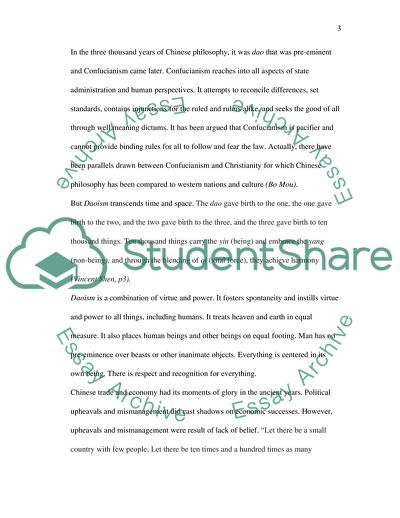Cite this document
(Chinese Philosophy Essay Example | Topics and Well Written Essays - 1250 words, n.d.)
Chinese Philosophy Essay Example | Topics and Well Written Essays - 1250 words. https://studentshare.org/philosophy/1728492-chinese-philosophy
Chinese Philosophy Essay Example | Topics and Well Written Essays - 1250 words. https://studentshare.org/philosophy/1728492-chinese-philosophy
(Chinese Philosophy Essay Example | Topics and Well Written Essays - 1250 Words)
Chinese Philosophy Essay Example | Topics and Well Written Essays - 1250 Words. https://studentshare.org/philosophy/1728492-chinese-philosophy.
Chinese Philosophy Essay Example | Topics and Well Written Essays - 1250 Words. https://studentshare.org/philosophy/1728492-chinese-philosophy.
“Chinese Philosophy Essay Example | Topics and Well Written Essays - 1250 Words”. https://studentshare.org/philosophy/1728492-chinese-philosophy.


